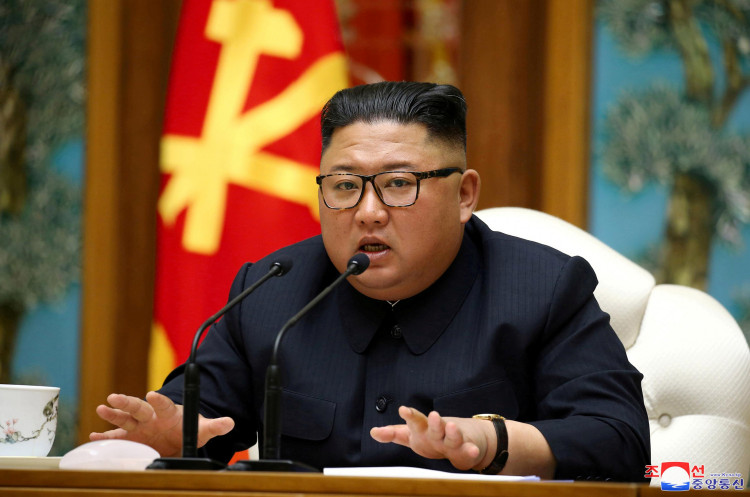South Korea has raised alarms about North Korea's deepening involvement in the Ukraine conflict, with its intelligence agency, the National Intelligence Service (NIS), confirming that Pyongyang has dispatched troops to Russia. The move marks a significant escalation in the conflict, signaling a deepening partnership between North Korea and Russia that could have profound implications for global security.
According to the NIS, approximately 1,500 North Korean special forces troops were transported by Russian navy ships to the port city of Vladivostok between October 8 and 13. These troops, clad in Russian military uniforms and equipped with forged identification documents, are currently training at military bases in Vladivostok and other Russian cities, such as Ussuriysk, Khabarovsk, and Blagoveshchensk. South Korean intelligence indicated that these soldiers would likely be deployed to combat roles once their adaptation training concludes.
President Yoon Suk Yeol of South Korea convened an emergency security meeting on Friday to discuss North Korea's involvement. Following the meeting, a statement from Yoon's office described North Korea's actions as a "grave security threat not only to our country but to the international community." The statement added that the situation had "moved beyond the supply of military materials" to include the direct involvement of North Korean forces in Russia's military activities in Ukraine. South Korea's stance remains clear: the country, alongside its allies, will continue to track these developments closely and respond with all available means.
South Korea's concern reflects the growing military ties between Pyongyang and Moscow since the summit between Kim Jong Un and Vladimir Putin in Russia's far east last year. At that summit, the two nations signed a comprehensive strategic partnership that included a mutual defense pact. This agreement appears to have solidified military cooperation, with the dispatch of North Korean forces to Russia marking their most significant involvement in a foreign war since the Korean War.
While the South Korean government has avoided elaborating on its specific response, it has previously been under pressure from Western allies, including the United States, to provide military aid to Ukraine. So far, Seoul has refrained from openly supplying lethal arms to Kyiv, instead opting to monitor developments closely. However, with North Korea's involvement confirmed, Seoul may be forced to reconsider its stance on supporting Ukraine.
Reports from the NIS also indicate that North Korea has provided Russia with substantial military hardware, including over 13,000 shipping containers of artillery rounds, ballistic missiles, and anti-tank rockets since August last year. In total, more than eight million artillery and rocket rounds have been shipped to Russia, supporting Moscow's military endeavors in Ukraine.
The NIS's findings align with statements made by Ukrainian President Volodymyr Zelenskiy, who recently accused North Korea of not only supplying arms but also dispatching officers to assist Russian forces. Zelenskiy claimed that intelligence reports suggested Pyongyang was preparing to send an additional 10,000 soldiers to aid Russia in its offensive against Ukraine. He warned that North Korea's direct involvement could potentially escalate the conflict further, transforming it into a global confrontation.
Despite the mounting evidence, both Russia and North Korea have denied the claims of arms transfers or the deployment of North Korean troops. Kremlin spokesperson Dmitry Peskov dismissed South Korea's assertions as "another piece of fake news." Moscow and Pyongyang have maintained that no such cooperation is taking place, a stance echoed in their consistent denials of engaging in arms deals.
NATO has also weighed in on the matter, with Secretary-General Mark Rutte remarking that the alliance currently lacks concrete evidence of North Korean troops being actively involved in combat operations in Ukraine. However, he acknowledged that North Korea's military support for Russia, whether through weapons supplies or technological aid, was "highly worrying."
Experts have questioned the efficacy of the North Korean troops in aiding Russia's war effort. Many point out that North Korea's military, despite having around 1.2 million active-duty soldiers, lacks recent combat experience and relies on outdated equipment. "They could guard some sections of the Russian-Ukrainian border, which would free Russian units for fighting elsewhere," said Valeriy Ryabykh, editor of the Ukrainian publication Defence Express. However, he noted that it was unlikely North Korean troops would be deployed to the front lines immediately.
In a move likely aimed at strengthening its nuclear program, North Korea's collaboration with Russia could include the exchange of military technology, food supplies, and economic aid. The growing cooperation has raised concerns in Seoul and Washington, as experts speculate that Pyongyang might be seeking Russian support for its missile and nuclear programs in return for its assistance in the Ukraine war.
The deployment of North Korean troops, if confirmed, would mark a significant escalation in North Korea's military engagement abroad, its most substantial since sending small contingents during the Vietnam War and the civil conflict in Syria. South Korean officials continue to urge the international community to respond decisively to what they describe as a rapidly escalating threat, emphasizing that North Korea's actions could have far-reaching implications for global security.




